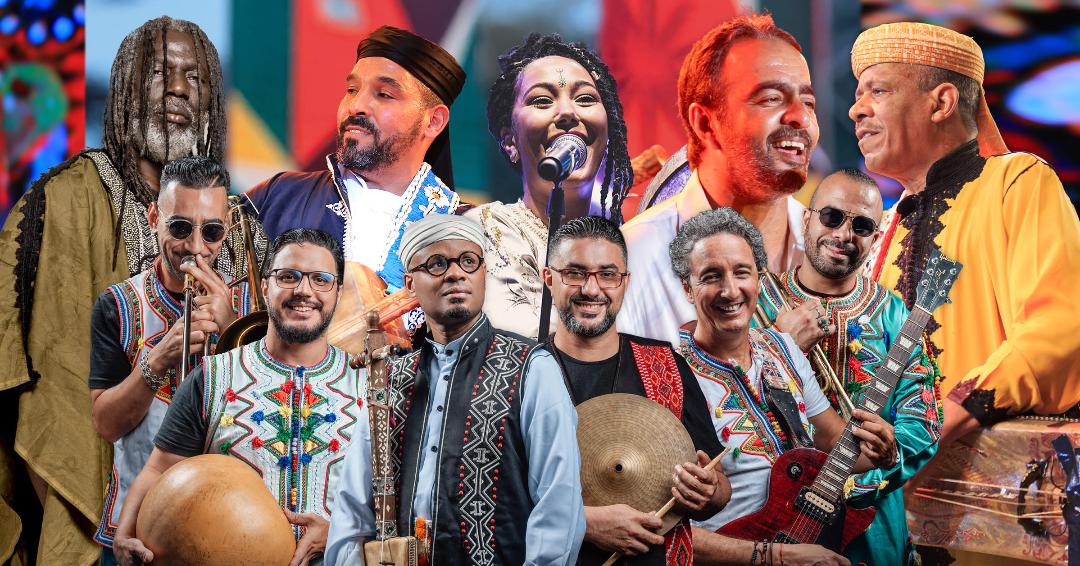The narrow streets of Essaouira came alive on Thursday as the 26th edition of the Gnaoua and World Music Festival got underway. A vibrant procession of color, rhythm, and energy kicked off the event, which has become a cornerstone of Morocco’s cultural calendar.
Launched under the High Patronage of King Mohammed VI, the festival opened with a symbolic gathering that featured André Azoulay—royal advisor and founder of the Essaouira-Mogador Association—alongside producer Neila Tazi, surrounded by leading figures from the worlds of art and culture.
The opening parade, led by the revered Maâlems Gnaoua, wound its way through the old city’s labyrinthine alleys, infusing the medina with a palpable energy. Traditional Gnaoua rhythms blended seamlessly with folk sounds from across Morocco and beyond, creating a collective performance that drew crowds of locals, tourists, music lovers, and the simply curious.
For Neila Tazi, this festival is much more than a musical celebration. It’s a powerful vehicle for cultural transmission—a space where ancient traditions meet contemporary voices, creating a shared dialogue between artists and audiences. To her, this meeting point represents a vision of culture as a unifying force, both nationally and globally.
Tazi emphasizes the human and symbolic importance of this annual gathering. In her view, culture is not just entertainment but a vital component of national cohesion and Morocco’s international influence. Gnaoua music, officially recognized as intangible cultural heritage by UNESCO, embodies that spirit. Rooted in a fusion of African, Berber, Arab, and Sufi traditions, the genre speaks a universal language—one that communicates grief, memory, resilience, and joy all at once.
The festival isn’t confined to musical performances. It also serves as a platform for dialogue—where traditions are heard, identities are explored, and new artistic pathways emerge. More than 350 performers are expected this year, including around 40 Maâlems Gnaoua, who will collaborate in unique, genre-crossing configurations on the city’s main stages.
In addition to the concerts, the event also hosts the 12th edition of the Human Rights Forum, held in partnership with the Council of the Moroccan Community Abroad. This year’s discussions will focus on human mobility and cultural dynamics, extending the festival’s influence far beyond music and into the heart of societal debate.
